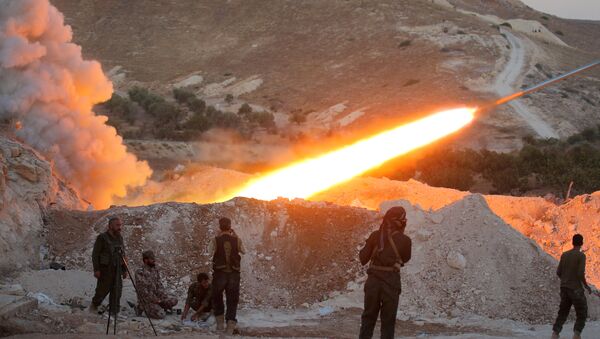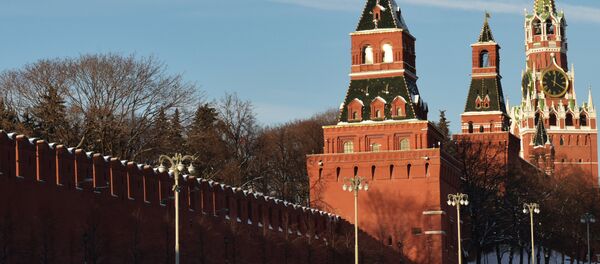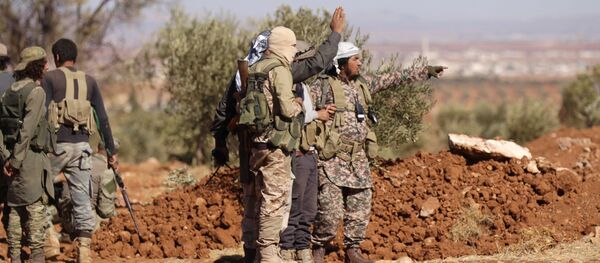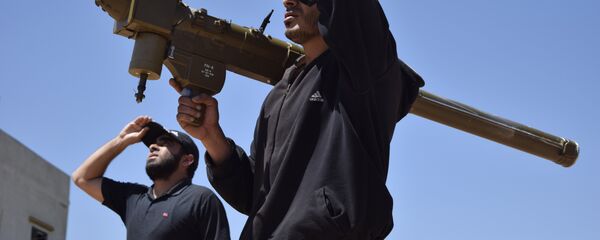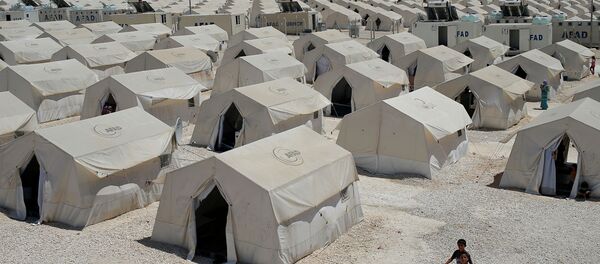US President Donald Trump has signaled that he is determined to turn the much discussed "safe zones" in Syria into reality.
Speaking to ABC News Wednesday, Trump emphasized that he "will absolutely do safe zones in Syria" for refugees in order to halt the flow of migrants from Syria to other states.
"I'll absolutely do safe zones in Syria for the people," he said, "I think that Europe has made a tremendous mistake by allowing these millions of people to go into Germany and various other countries. And all you have to do is take a look. It's a disaster what's happening over there."
Commenting on the issue Reuters reported that Trump is due to sign a draft executive order on implementing safe zones in Syria within 90 days.
However, the media outlet underscored that the document in question, entitled "Protecting the Nation From Terrorist Attacks by Foreign Nationals," doesn't provide any details on where and when these safe zones would be implemented and who would protect them.
In response to Trump's move, Moscow noted that before establishing safe zones in Syria one should carefully weigh the pros and cons.
"Our US partners have not consulted with Russia, it is a sovereign decision. It is important not to aggravate the situation with refugees. One ought to calculate all the possible consequences," Kremlin spokesman Dmitry Peskov told journalists Thursday.
For his part, Turkish Foreign Ministry spokesman Huseyin Muftuoglu also noted that the issue requires consideration.
"What is important is what kind of results of this work would have and what kind of information and guidance will come out from US institutions," Muftuoglu told a press conference, as quoted by the Anadolu Agency.
Ankara has long been known as a proponent of establishing no-fly zones in northern Syria.
Back in December, 2016, Trump promised his voters to build safe zones in Syria and persuade Persian Gulf states to pay for it.
"We are going to build safe zones in Syria and we are going to get the Gulf states to pay for the safe zones," Trump told a thank you rally in Orlando, Florida.
Commenting on the issue, Russian analyst and former diplomat Vyacheslav Matuzov told Radio Sputnik in December that Trump's plan to build safe zones in Syria will only work if the legitimate Syrian government of Bashar al-Assad continues to keep these zones under control.
"The creation of safe zones [in Syria] should not mean bringing them out of control of the Syrian legitimate government. I believe that 'safe zones' could mean only one thing — to keep territories safe against terrorist groups Syria is suffering from," Matuzov explained, "If Trump meant exactly the same thing we will have no problems with it."
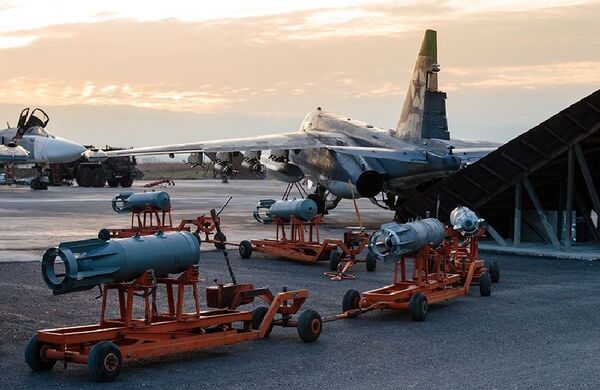
According to Daniel Larison of the American Conservative the implementation of safe zones in Syria will be no walk in the park for the Trump administration.
"Creating safe zones would require a large deployment of ground forces that would be prepared to defend it against anyone that might attack, and the mission would be an open-ended one," Larison warned.
He quoted John Ford, a captain in the United States Army, who insisted that the idea of Syrian safe zones is "unworkable." In his October op-ed for The National Interest Ford underscored that safe zones sound good only in theory, warning that they could create the risk of a direct conflict with either Damascus or Russia.
In any event, the initiative represents "a dramatic and unwarranted escalation of US involvement in Syria's civil war," Larison pointed out, suggesting that most Americans won't support it.
During the final presidential debate Clinton clarified that by establishing no-fly zones and safe havens in Syria she hoped to gain the upper hand over Damascus and Russia in Syria.
"I'm going to continue to push for a no-fly zone and safe havens within Syria, not only to help protect the Syrians and prevent the constant outflow of refugees, but to, frankly, gain some leverage on both the Syrian government and the Russians," she said.
However, General Joseph Dunford, Chairman of the Joint Chiefs of Staff threw some cold water on the plan back in September 2016.
"Right now… for us to control all of the airspace in Syria would require us to go to war against Syria and Russia," Dunford told the Senate Armed Services Committee commenting on the no-fly zone idea.
